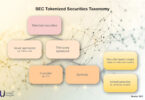The City of Beijing has published a report entitled the Beijing Internet 3.0 Innovation Development White Paper. Having read the report, we can confirm this paper does not indicate a move by China to embrace cryptocurrency.
Web3 and particularly the concept of NFTs are covered, although only in passing. Instead, the focus is primarily on the metaverse evolving beyond entertainment to the stage where most internet activity is experienced in 3D virtual spaces and the applications apply to everyday life and business. This is what it calls ‘Internet 3.0’.
In this context, it explores what is needed to reach that stage. One is the integration of virtual and real worlds with digital twins. Another is providing open authoring tools and standards to empower creators. Next, it envisions economic activities such as “production, distribution, exchange, and consumption,” which it says will be interconnected with real world economic activities.
Article continues …

Want the full story? Pro subscribers get complete articles, exclusive industry analysis, and early access to legislative updates that keep you ahead of the competition. Join the professionals who are choosing deeper insights over surface level news.






